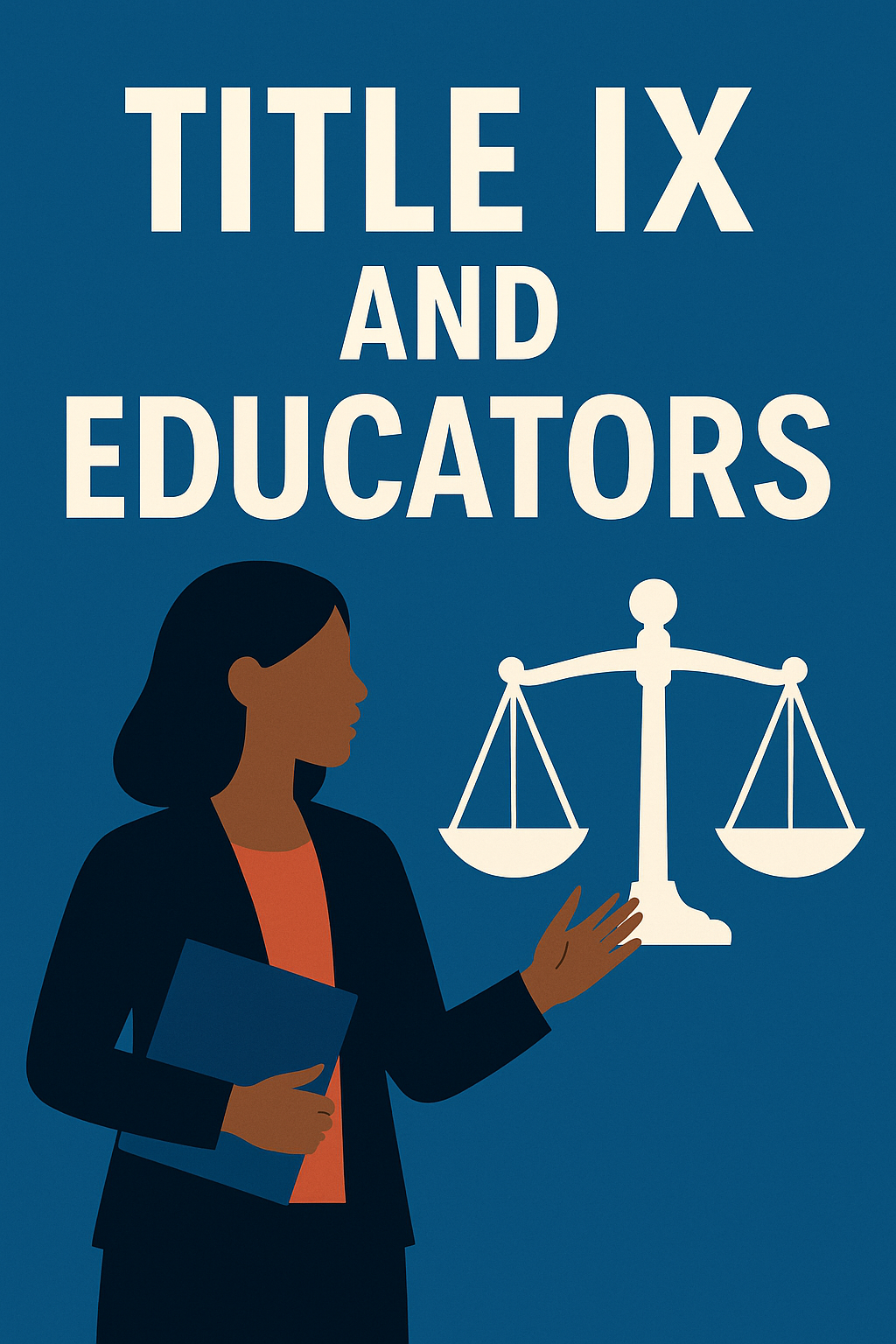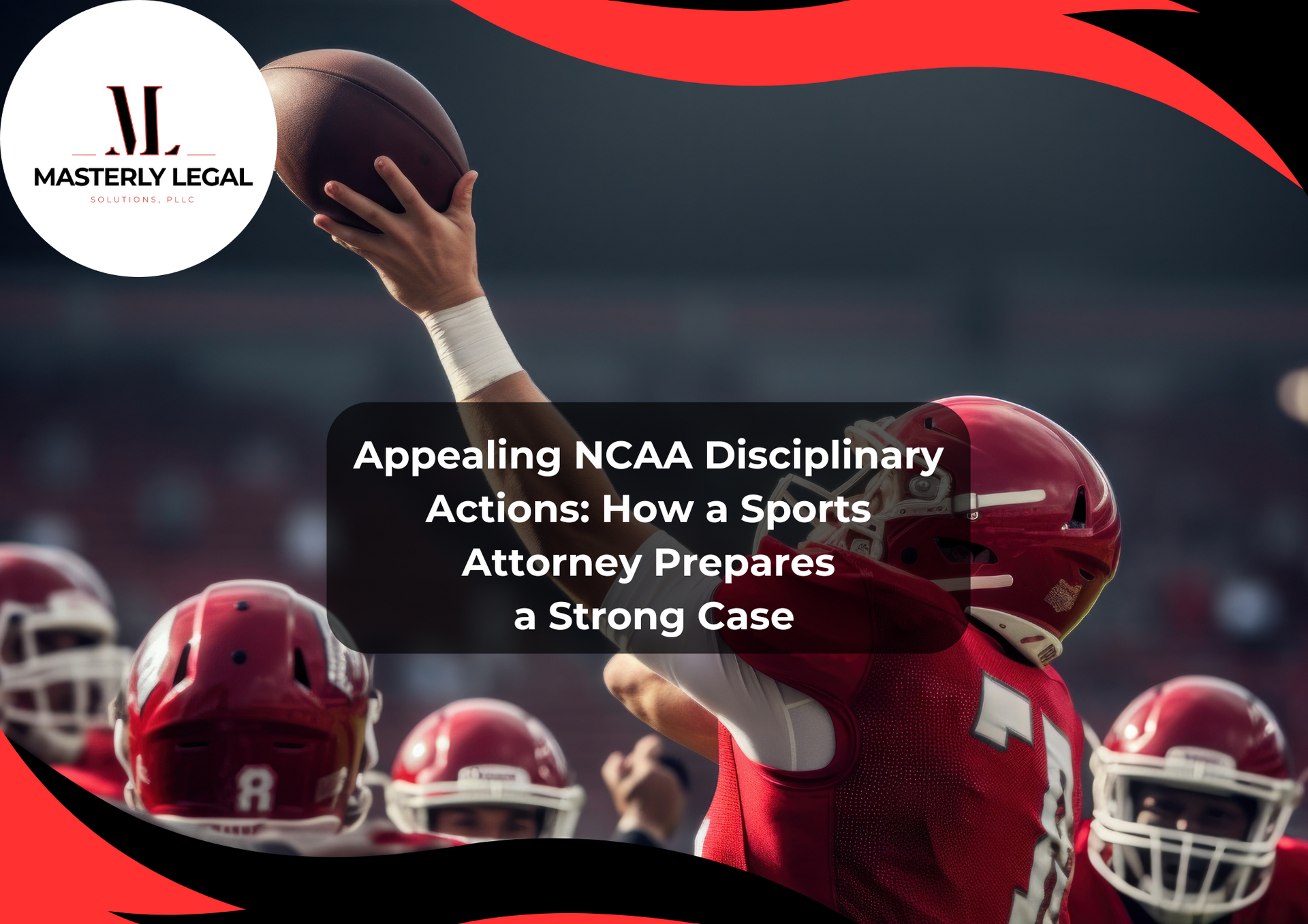What to Do If You’re Facing Termination from a University Position: A Legal Guide
Facing termination from a university position, whether you are a professor or an administrator, can be a stressful and complex process. Termination may affect your professional reputation, your financial security, and even your future career prospects. However, knowing your legal rights and options can help you navigate this situation and protect your interests. This guide is designed to help you understand how to challenge wrongful termination and negotiate favorable severance agreements.
As higher education attorneys, we have extensive experience representing faculty and administrators in legal disputes with colleges and universities. Whether you are dealing with issues related to academic misconduct, labor relations, or other legal issues, it is crucial to understand your rights and the steps you can take to protect them.
Understanding the Grounds for Termination
Before challenging a termination, it's important to understand the grounds for which universities or higher education institutions can legally terminate an employee. Terminations can occur for several reasons, including:
- Performance issues or failure to meet academic standards
- Breach of university policies or student handbooks
- Allegations of academic misconduct or sexual misconduct
- Violations of Title IX or other regulatory standards
- Institutional restructuring or budget cuts
If you believe your termination is based on false claims, discrimination, or retaliation, you may have grounds for a legal challenge. Consulting with a higher education attorney will help clarify whether your termination was lawful or if you have a case for wrongful termination.

Challenging a Wrongful Termination
Wrongful termination in the context of higher education refers to being terminated for illegal reasons, such as discrimination, retaliation for reporting misconduct, or breaches of contract. If you believe that your termination falls under these categories, it is essential to take the following steps:
1. Review Your Employment Contract and University Policies
Start by reviewing your employment contract, student handbooks, and other legal documents provided by your employer. Pay close attention to provisions related to termination, academic freedom, and dispute resolution procedures. Also, ensure that the university followed its own guidelines for disciplinary action.
2. Consult with a Higher Education Attorney
Seeking the guidance of an education law attorney is crucial in determining whether your rights have been violated. Higher education attorneys can evaluate your case and provide legal strategies for challenging the termination. They can also help you navigate the grievance procedures established by your institution.
3. Gather Evidence
Compile any relevant documentation, such as performance reviews, emails, or witness testimonies, that can support your claim of wrongful termination. This evidence will be critical in presenting your case to university officials or in court.
4. File a Grievance
Many universities have internal grievance procedures that allow employees to challenge their termination. This may involve a formal hearing or mediation process. Your higher education attorney can represent you during these proceedings and ensure that your rights are protected.
Negotiating a Severance Agreement
In some cases, employees facing termination may choose to negotiate a severance agreement rather than pursuing a legal challenge. A severance agreement is a contract between you and the university that typically includes compensation and other benefits in exchange for waiving any legal claims against the institution.
1. Understand Your Leverage
If your termination was not entirely justified, or if the university wishes to avoid a lengthy legal dispute, you may have leverage in negotiating the terms of your severance. Top higher education attorneys can help you assess your bargaining position and maximize your benefits.
2. Key Elements of a Severance Agreement
A well-negotiated severance agreement may include the following elements:
- Financial compensation, including salary continuation and benefits
- Non-disparagement clauses to protect your professional reputation
- Outplacement services to assist in finding new employment
- Mutual release of claims, ensuring both parties agree not to pursue further legal action
3. Seek Legal Counsel
Never sign a severance agreement without reviewing it with an experienced higher education attorney. They will ensure that the terms are fair and that you are not waiving any rights that could impact your future career.
Defending Academic Freedom and Intellectual Property Rights
One of the unique challenges faced by professors in higher education is the need to defend their academic freedom. If you believe that your termination is linked to your academic work, teaching methods, or research, it is important to consult with an education law attorney who understands higher education law.
Additionally, if your termination affects your control over intellectual property, such as research or patents, it is crucial to protect your rights. Higher education law attorneys are well-versed in handling intellectual property disputes and can ensure that your work remains under your control.
Addressing Title IX and Sexual Misconduct Allegations
Allegations of sexual misconduct or violations of Title IX can lead to swift and serious consequences for faculty members and administrators. Higher education institutions are required to comply with Title IX compliance standards, and failure to follow these regulations can lead to investigations and legal action.
If you are facing termination due to allegations related to Title IX or sexual misconduct, it is imperative to have a strong legal defense. Experienced attorneys who specialize in higher education law can assist in defending against these claims and ensure that your rights are not violated during the investigation process.
Labor and Employment Law Issues in Higher Education
The complexities of labor and employment law in higher education can make navigating a termination particularly difficult. Issues such as employee benefits, collective bargaining, and labor contracts can affect your rights as a faculty member or administrator.
If your termination involves labor disputes, such as a breach of your employment contract or issues related to union representation, a school law attorney can provide the legal resources necessary to defend your position. Education law attorneys are skilled in handling labor relations and can represent you in negotiations with the university or government agencies.
Key Considerations for University Administrators
University administrators, including deans, provosts, and vice presidents, face unique challenges when dealing with termination. Whether the termination is the result of budget cuts, restructuring, or compliance issues, it is important for administrators to seek legal guidance early in the process.
1. Protecting Your Reputation
University administrators are often highly visible figures within their institutions. Protecting your professional reputation is critical, especially if you plan to continue your career in higher education. An education law attorney can help you negotiate non-disparagement clauses and other protections in your severance agreement.
2. Compliance with Regulatory Requirements
Administrators are often involved in ensuring that their institution complies with regulatory requirements, including those related to Title IX, the Clery Act, and other compliance requirements. If your termination is linked to alleged violations of these regulations, it is essential to consult with experienced attorneys who understand higher education law and can defend your actions.
Defending Against False Claims and Retaliation
If you are facing termination due to false claims or retaliation for reporting misconduct within your institution, you may have a case for wrongful termination. Higher education attorneys can help you file a legal claim to defend against these allegations and seek compensation for any damages you have suffered.
Common Causes of Retaliation Claims:
- Reporting financial misconduct or fraud
- Whistleblowing on violations of university policies
- Challenging discriminatory practices within the institution
An education law attorney near me can provide the legal counsel needed to defend your rights and pursue justice.
Legal Support for Higher Education Clients and Educational Institutions
Higher education clients, including educational institutions such as school districts, community colleges, private universities, and independent schools, face unique legal challenges. From navigating compliance with the Department of Education regulations to managing student affairs and ensuring compliance with civil rights laws, having experienced legal representation is essential.
Our firm works closely with general counsel and administrative teams of these institutions to provide legal guidance on matters like clinical affiliation agreements, labor disputes, and complex litigation. Whether you represent a private college or a public school, our education lawyers assist in protecting your institution’s rights, maintaining its educational mission, and fostering a positive campus culture.
When to Consult a Higher Education Attorney
If you are facing termination from a university position, it is critical to seek legal advice as soon as possible. Whether you choose to challenge the termination, negotiate a severance agreement, or defend against false claims, an experienced higher education attorney can guide you through the process and protect your legal rights.
Finding the Right Higher Education Law Attorney in Texas
When facing legal challenges in the academic world, it's essential to have the right legal representation. A higher education law attorney can provide valuable guidance and support, particularly if you're dealing with issues related to termination, academic freedom, or compliance. Whether you’re located in Houston, Dallas, or elsewhere in Texas, finding an experienced higher education attorney is critical to protecting your rights.
If you're in need of a higher education attorney in Houston, or a higher education attorney in Dallas, our team of professionals offers comprehensive legal services to handle the unique challenges of higher education law across Texas. With extensive knowledge of higher education attorney Texas regulations, we can help you navigate complex legal disputes with confidence.
Legal Challenges for Private Universities and Online Education Programs
Private universities and private colleges are increasingly offering online education programs to meet the evolving needs of their students. However, these programs come with unique legal challenges, including compliance with federal laws such as the Family Educational Rights and Privacy Act (FERPA), as well as protection against potential claims under the False Claims Act.
Our firm assists institutional clients in navigating these complex legal issues, providing strategic legal counsel to ensure compliance with privacy laws and assist in defense strategies for any claims that may arise. Whether addressing matters of sexual violence, litigation defense, or labor and employment disputes, we work closely with senior administrators and local counsel to protect the institution’s interests, while fostering a safe and legally compliant educational environment.
Contact Us for Legal Guidance
If you are facing termination from a higher education institution and need legal assistance, contact us for a free consultation. Our team of higher education attorneys has extensive experience handling employment disputes, wrongful termination cases, and severance negotiations in the academic field.
Contact us at (972) 236-5051 for a free consultation.
Disclaimer: This article is for informational purposes only and does not constitute legal guidance. For legal advice, please consult with a qualified attorney.


Looking for Legal & Business Solutions? Contact Us Now
Fill in the form or call us to set up a meeting












